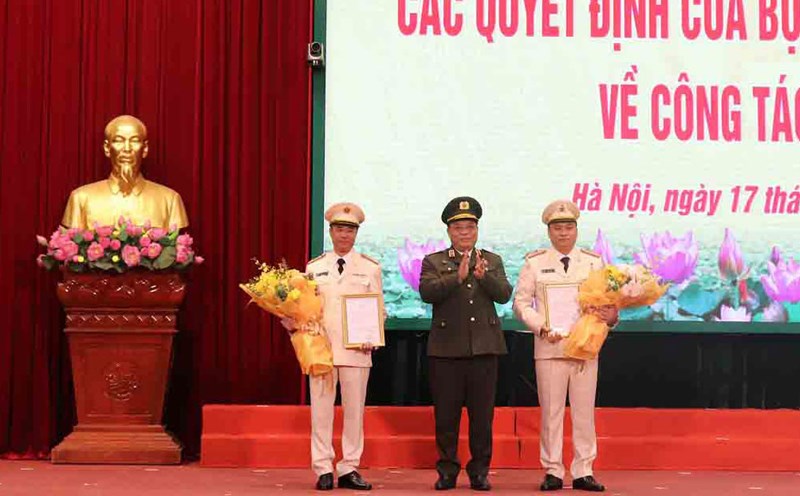On January 9, at the Government Headquarters, Deputy Prime Minister Le Thanh Long - Head of the Central Inter-sectoral Steering Committee on Food Safety - chaired a meeting of the Steering Committee to summarize the work in 2024 and key tasks in 2025.
At the meeting, the Ministry of Health said that in 2024, the health sector inspected 354,820 establishments, detecting 22,073 establishments violating food safety (FS), accounting for 6.22% of the number of establishments inspected. The number of establishments fined increased 2.9 times compared to 2023, the amount of fines increased 1.69 times.
Police forces have prosecuted 62 cases (an increase of nearly 88%) with 97 defendants (an increase of more than 185%).
According to the Ministry of Health, the system of legal documents on food safety continues to be improved, meeting the requirements of state management on food safety.
Inspection and examination work is carried out in a way that focuses on specific cases, limiting spreading; from the central to local levels, with the participation of all levels and functional sectors, has promptly detected, prevented and handled many violations with many different forms, ensuring compliance with the law, and promptly publicizing them on mass media to help people have information to choose safe food.
However, the Ministry of Health believes that food safety inspection, examination and post-inspection work only meets part of the actual requirements.
Opinions suggest that it is necessary to promote propaganda about sanctions to change people's awareness, such as the propaganda of Decree 168 on sanctions in the field of traffic safety. It is necessary to identify the work of detecting, preventing, and handling criminal cases related to food safety as a key and breakthrough work to deter and reduce food safety crimes.
Along with the strong development of information technology, e-commerce, online business, the characteristics of this type of business are no fixed business location, anonymity, unreal name, this causes many difficulties in controlling the origin and quality of products.
It is necessary to strengthen inter-sectoral inspection and examination from the central to communal levels, focusing on product groups consumed a lot during Tet and festivals with high risk factors, food processing villages, provinces with border gates, and large cities.

Concluding the meeting, Deputy Prime Minister Le Thanh Long stated that despite many efforts, there are still some limitations. The number of food safety violations has increased. The number of people affected is still large. Some tasks have been included in the plan but implementation is slow.
Regarding the direction and tasks for 2025, the Deputy Prime Minister emphasized the need to strengthen inspection and supervision and strictly handle violations when they are detected.
Inter-sectoral coordination is important and needs to be focused on, the Deputy Prime Minister stated, not just one agency but the whole system, including key agencies.
Propaganda work must be more comprehensive, especially regarding sanctions and punishments to serve as a deterrent.
It is necessary to strengthen communication on food safety, focusing on preventive solutions and sanctions, inspections and checks.
Regarding the opinion on increasing sanctions, the Deputy Prime Minister requested ministries to study and propose amendments to relevant documents.
The Government leader also requested the ministries and branches that are members of the Steering Committee to strictly implement the policy on restructuring and streamlining the apparatus, and report to the Prime Minister to consider arising issues to ensure that food safety work is still carried out smoothly.










